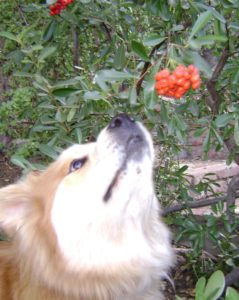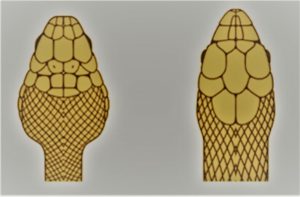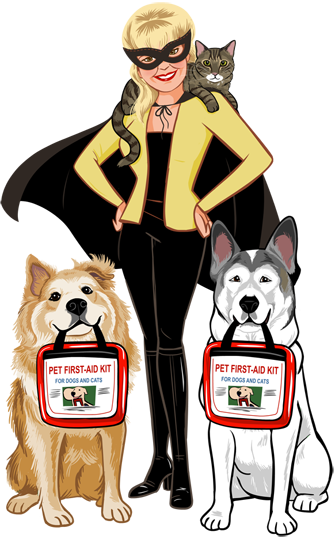
Heat: If it’s too hot for you…it’s too hot for your pets!
- Hot concrete and asphalt can burn precious paws. Place the top of your hand (not the more toughened palm) on the surface and hold for 5 seconds. If it feels comfortable to your skin, then it should be safe for your dog or cat to walk on. If not, don’t let your pet, and don’t confuse air temperature with asphalt temperature! The difference can be 50 degrees or more!

 Protect precious paws with Pawz Dog Boots or Pawz Max Wax! The boots are easy to slip on and off but are for those quick potty breaks (remember, dogs release heat through the pads of their feet so you never want to leave paws covered with booties for long periods of time in warm weather) while the wax provides comfort from hot surfaces, including sand.
Protect precious paws with Pawz Dog Boots or Pawz Max Wax! The boots are easy to slip on and off but are for those quick potty breaks (remember, dogs release heat through the pads of their feet so you never want to leave paws covered with booties for long periods of time in warm weather) while the wax provides comfort from hot surfaces, including sand.
- NEVER ever leave an animal in a parked car. It takes only minutes to reach unbearable temperatures leading to brain damage, organ failure and death.
- Make sure fenced yards offer shade all day long INSIDE the fence. As the sun moves in relation to your trees, the shadow may be cast at your neighbor’s lawn instead.
- Keep dogs and cats well-hydrated with bowls that don’t get hot and are placed in a cool location. Better yet, make sure the bowl is hooked to a spigot that constantly refills in case the bowl empties.
- Also, learn about the signs of Hyponetremia (too much water) which can occur in dogs playing water sports, ingesting water each time they catch a ball.
- Have electrolyte “ice cubes” ready to go in your freezer to add to water bowls:
- 4 cups water
- 1 Tablespoon sugar
- 1 teaspoon salt
- Have frozen treats available to keep body heat down – the store-bought kind or the DIY ones, the options are limitless:
- Plain and simple ice chips
- Blend ½ tuna juice (or clam) with ½ water and freeze into cubes for kitties.
- Blend tuna, chopped liver, bits of cooked beef or chicken with non-fat plain yogurt and freeze in silicon muffin cups or ice cube trays.
- Mix ½ peanut butter (no xylitol) and ½ non-fat plain yogurt and freeze.
- Freeze coconut oil, banana slices and blueberries in silicon trays.
- Keep pets well-groomed, but don’t shave off fur. Leave a minimum of 1 – 1 ½ inches in length to insulate your pet’s skin from sunburn.
- Know first aid for HEATSTROKE!
 Plant Life
Plant Life
- Know what parts of plants in your yard and neighborhood are toxic. Consult https://www.humanesociety.org/sites/default/files/docs/poisonous-plants-to-pets.pdf if you are unsure.
- Mushroom species can be difficult for even mycologists (aka mushroom experts) to identify correctly. Additionally, little is known about the potential toxicity of many species. Mushrooms considered edible in Europe have been associated with toxicity cases in North America and vice versa. Toxicity can vary depending on habitat according to other plants or trees are growing in the same soil. If you suspect your pet has eaten a wild growing mushroom, call your vet at once!

Fortunately, Haiku is totally uninterested in this mushroom! - Check pets over carefully after being outdoors to remove fox tails, burrs and and any other potentially dangerous plant life. Bathe immediately if they get into plant pollen so that they won’t ingest.
- Know first aid for POISONING!
Insecticides & Fertilizers: Keep paws & claws off!
- Use only “Pet & Wildlife friendly” fertilizers & insecticides. What isn’t absorbed through an animal’s paws is ingested when he grooms or even inhaled. “Organic” does not mean safe for consumption when used on lawn and garden chemicals.
- Here’s a GRReat recipe for a pet-friendly weed killer:
- Mix and spray in the morning after the dew has evaporated. By dinner time, weeds are gone!
- 1 Gallon White Vinegar
- 2 Cups Epsom Salts
- ¼ Cup Dawn® Dish Soap (the original blue works best)
- Mix and spray in the morning after the dew has evaporated. By dinner time, weeds are gone!
- Insecticides are designed to kill certain life forms. Make double dog sure they aren’t harmful to your furry, feathered, finned or scaled family members.
- After walks and potty breaks, it’s a good idea to wash off those precious paws! Dip them in a container with warm soapy water or wipe well with a cloth, but just make sure you not only get off the reside of whatever those furry footsies may have stepped in, but that you then also get off the cleaner (unless you’re 100% sure it is safe to ingest if your pet later licks his paws). Gently clean between the toes and around the paw pads clipping any long fur covering them and trim those nails.
- Know first aid for POISONING!
Lakes, Ponds, Pools & Streams: Supervise & protect!
- Supervise, supervise, supervise. Just because a dog’s last name is “retriever” doesn’t mean he knows how to swim. Dogs with short necks (ex. Bulldogs) have trouble keeping their heads above water. Invest the time in teaching your dog to swim, and when in the water, fit your pet with a flotation device that keeps head out of water. My favorite is the Hedz-Up Water Collar!

- If you have a pool…
- Have it fenced off or prevent access when you aren’t there to supervise.
- Remind pets each season how to get out (i.e. steps, ramp, etc.) by taking them through the motions.
- Keep eyes peeled for sharp rocks, fishing hooks, jelly fish, water snakes and other dangers, and know immediate first aid as well as the location of your closest Animal ER should the worst happen.
- Know first aid for DROWNING!
Cook-outs: Avoid the burn – in the gut and on the paws & nose!
- Make sure paws or snouts don’t get burned stealing from the barbie! Again…supervise, supervise, supervise!

- No fried or salty foods for Fido or Fluffy. Either could lead to pancreatitis or heart issues.
- Beware of corn cobs & cooked bones which could become choking issues or cause intestinal blockages.
- Paws off watermelon and other fruit seeds and pits which contain arsenic and can poison if bitten into.
- Know first aid for BURNS & POISONING!
Wildlife: Know what is indigenous to your ‘hood and create a barrier between wildlife & pets!

- Protect pets from fleas, ticks, heartworms and other parasites by using preventative recommended by your veterinarian for your specific pet and locale. Never share meds with different species or pets in different weight classifications and always store properly making sure medications are within their expiration date.
- Teach pets from the get-go not to snap at bees but know proper first aid should a sting occur.
- Don’t leave pets outside where fly strikes could occur. Protect ears with Avon’s Skin-so-soft or add 1 Tablespoon Cider Vinegar to your dog’s water bowl to make him less tasty to flies. Know first aid techniques should your pet end up with sores or worse…maggots laid under the skin!
- Find out what venomous snakes, spiders, scorpions or jelly fish are likely to meet up with your pet and know proper first aid techniques until you can get your pet to the vet. All of these and more can be found in The Pet Safety Bible (also The Dog Safety Bible and The Cat Safety Bible).
- Know first aid for BITES & STINGS!
The warm weather can bring good times for all as long as we remember…dogs and cats are furry toddlers for life, and we must supervise, protect and be knowledgeable in how to help all our family members!
The heat is on in many parts of the country, so I'm talking…Hot Weather Pet Safety! Read the blog for details at www.PetSafetyCrusader.com/hot-weather-pet-safety/ and check out the products I shared @Pawz Dog Boots (for their booties & Max Wax) and Hedz Up Pets Watercollars, remember my students get 15% off so get the scoop at: https://www.petsafetycrusader.com/shop/health-and-safety-products/hedz-up-water-collars/
Posted by Sunny-Dog Ink on Thursday, May 23, 2019
Please also refer to other blogs at this website:
Memorial Day Weekend Pet Safety
___________________________________________________
For 20 years Denise Fleck’s Sunny-dog Ink motto has been “Helping people to help their pets,” and she has…personally having taught close to 20,000 pet lovers animal life-saving skills and millions more on “The Doctors,” CNN, “Kirstie Alley’s Big Life,” Animal Planet and other TV shows. Denise is a frequent conference speaker, developed a line of pet first aid kits, written a dozen books and now offers classes online.
Note: The articles on this page are copyrighted. Please do not reprint or use portions for any purpose without written permission from the author. Request permission for usage by sending an email explaining how you’d like to use the materials and what parts specifically. Thank you in advance!








